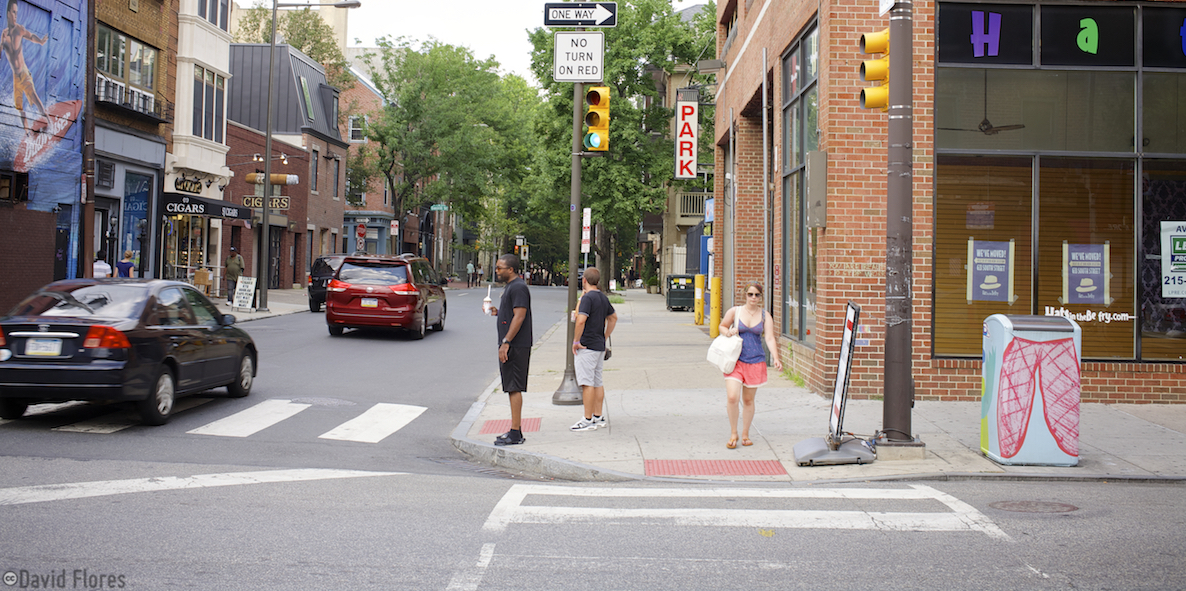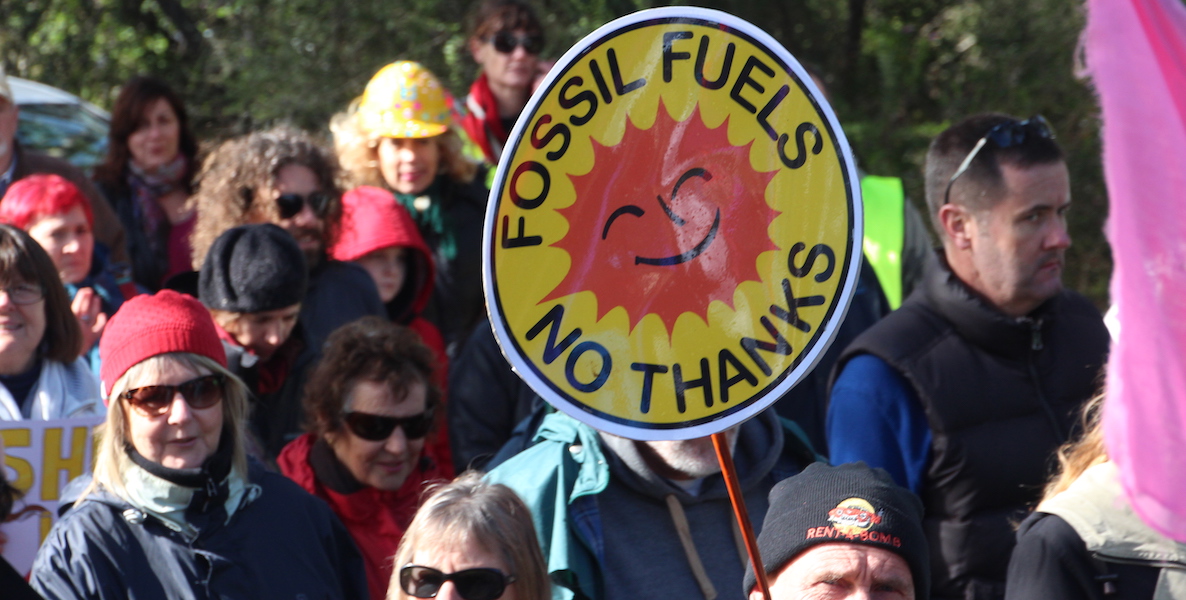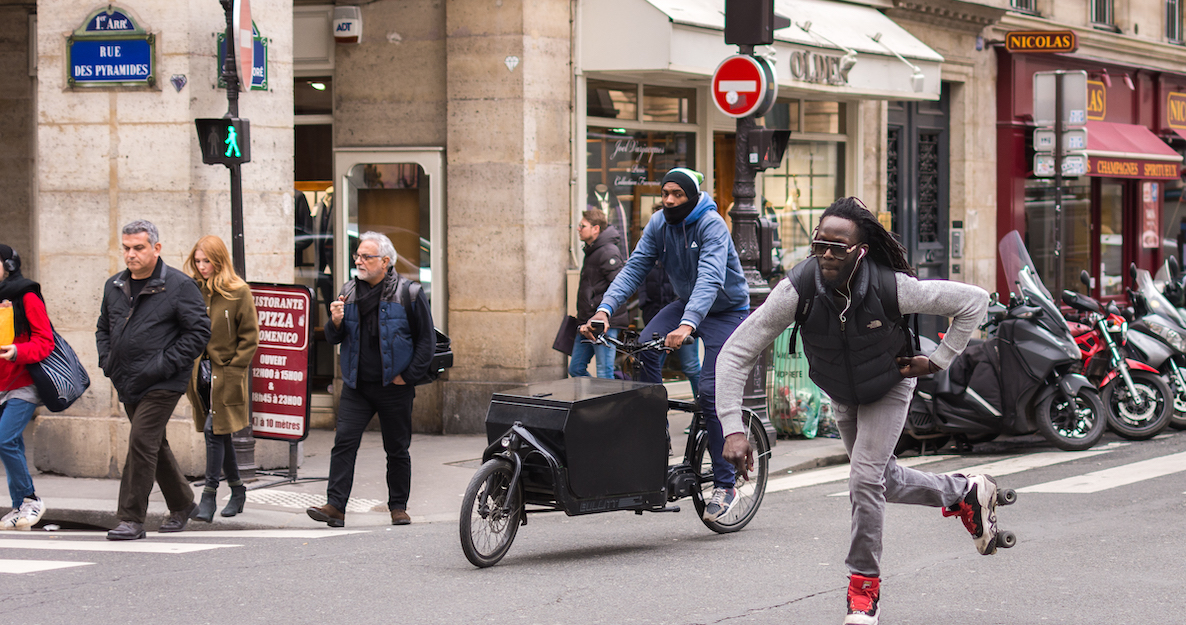This week, EConsult Solutions released a report that put into stark detail something anyone who spends time getting to or from Center City already knows: The traffic is terrible.
How terrible is it? According to EConsult, Philadelphians spend 9.7 million hours a year sitting in traffic, at a cost of $152 million in time value and transit costs, including $7.7 million in gas. That amounts to $260 a year for every person in the city. That’s quite a tax for simply trying to get across town. And it’s not just the cost: Congestion threatens needed growth in the city, and contributes to the increasingly bad air that we breathe—not to mention the effect it has on the planet itself.
This is not without controversy, but it’s one Mayor Hidalgo has been willing to weather because of, well, the warming weather. “Climate is the number one priority,” she said in late 2016. “Less cars mean less pollution.”
The good news is that the City has already started to think about ways to address this problem: Voters in May approved the hiring of traffic cops; City Council is considering increased parking ticket fines and congestion pricing (like New York City recently passed); SEPTA has started a years-long process of upgrading its bus network; the Parking Authority is looking at ways to limit, or fine, car share services like Lyft and Uber.

Prefer the audio version of this story? Listen to this article in CitizenCast below:

![]()
That’s all fine. But it is hard not to be skeptical that we can change the way we get around without a full-scale change in how we tackle the harder, related issues. One of the reasons we have so many cars is that we have too few jobs in the city. Center City District President Paul Levy has calculated that 40 percent of working Philadelphians commute to the suburbs, an astonishing figure. And, we need suburbanites here in town, too, to work, shop and eat.
![]()
But we also need changes to the way we think about public spaces, including streets, in Philadelphia. Namely: That they are for everyone, and that it is our collective responsibility to make sure we keep the streets safe, easy to navigate, clean and as stress-free as possible. Like, for example, they do in Paris.
Let’s pause for a moment to acknowledge that comparing any place to Paris—Paris!—is in some ways a fool’s errand. And it’s true that many of the issues that plague Philadelphia, or indeed most American cities, are different from those that afflict Paris. But not entirely: It’s an old city, of 2 million people, bursting with refugees and 40 million tourists a year, with a poverty rate that averages 14 percent but is as high as 40 percent in some neighborhoods, and has some of the worst air pollution in Europe.
We need changes to the way we think about public spaces, including streets, in Philadelphia. Namely: That they are for everyone, and that it is our collective responsibility to make sure we keep the streets safe, easy to navigate, clean and as stress-free as possible.
But in Paris, 20 years of intentional leadership has brought an incredible change to the way residents get around. Since the mid-90s, the amount of driving has gone down by about 45 percent, while Metro ridership has risen 30 percent, and biking has gone up 10 fold.
![]()
That came about from a concerted effort on the part of a string of mayors to pedestrianize the city (avenues through Paris along the Seine River are closed to traffic in the summer, for example); install 400 miles of bike lanes; widen the reach and frequency of its subway system; and encourage more car-free living. Its current mayor, Anne Hidalgo, The Atlantic’s City Lab has noted, is responsible for “some of the most systematically anti-car policies of any major world city.”
Compare that to our unambitious leaders—like City Council President Darrell Clarke, who has quipped that Philadelphians drive to the corner store, as if there’s nothing wrong with that—who have systematically failed to create real change that could make for less car travel, along with its related ills. It it not easy; it is also not inexpensive. But it is, as we know in stark number this week, necessary.
Here, some lessons from Paris that could ease our congestion woes:
1. The streets are made for biking. And walking. And scootering. Picture it: A sidewalk as wide as a lane of road. Then a small curb. Then a clearly marked bike lane. Then another curb. Then, the road with its cars and busses and motorcycles (for which there is dedicated parking all over the place). In addition to its 430 miles of bike lanes, several hundred more are in the works, including on smaller streets. It even has a bike highway. This is not without controversy, but it’s one Mayor Hidalgo has been willing to weather because of, well, the warming weather. “Climate is the number one priority,” she said in late 2016. “Less cars mean less pollution.”
In Philly right now, we barely have any protected bike lanes—those with barriers between cars and bikes—though Mayor Kenney has revived his 2015 campaign promise and pledged 20 miles of protected bike lanes by the end of next year, and 40 miles by 2025. What Paris has proven is there’s a tipping point: Bike ridership there has increased more than 10 times since the 1990s—and the city expects bike trips to outpace car travel in the next decade.
2. The Metro is widespread and tres easy to navigate. Let’s just take one egregious example from Philly as a comparison: City Hall. It’s the hub of our subway system, from where you can go to every corner reached by our subway. But saying it’s unwelcoming is like saying the Louvre is a “little art gallery:” A monumental understatement. It’s cramped, perpetually in need of structural repair, and incomprehensible to navigate. Not every stop is like this, of course, but this is the dead center of the SEPTA system, directly beneath City Hall, and as such a sad symbol of the way we treat our mass transit.
There are also trash cans everywhere, and cute little street cleaners that fit even into alleys and leave the city scrubbed, and a culture of politeness that makes tossing trash—even cigarette butts—onto the street a nonstarter. Here? Not so much. Le sigh.
In Paris, the Metro is so much bigger and so much more comprehensive, but also so much easier to follow, even for out of towners. Directional signs are everywhere, and they just…tell you where to go, and when the next couple of trains will be approaching (often every four minutes). The system is also in the process of getting bigger: By 2030, the Metro will have an additional four subway lines and 68 stations over more than 120 miles—something the city estimates will increase ridership by some 40 percent. The goal is to both reduce car congestion, and knit together the city’s far flung suburbs. Imagine that: A city and its suburbs (admittedly a different beast from American suburbs) joined together in mass transit harmony.
3. Their regional and long-distance rails are what mass transit should be—user-friendly. We can’t have high speed trains because we can’t get politicians to agree to the need to fund it, or get over our devotion to the car. In France, you can go 500 miles in 3.5 hours on a train that is quiet cars all the way along the line; that allows you to order delicious food via an online app to pick up at a designated time in the bar car; lets you follow the route on your device while noting landmarks of significance in towns along the way; and connects you to an online community of your fellow travelers in case you need advice, or just an iPhone charger. You know what that is? Customer service. What a concept.
4. They welcome skateboarders—and not just hidden away in skate parks at the edges of the city (though they have some there, too). This acknowledges something Philly struggles to accept: Public spaces are sometimes crowded and inconvenient; they sometimes require walking around rather than through; they sometimes are for young people, or alternative people, or old people—and not all at the same time. That’s beautiful—the way Love Park was beautiful before the City cleaned it up into a blank concrete slab and hid the skaters away.
5. They are clean. Not universally, and not perhaps in every corner of the city. But for a teeming city, with a bustling nightlife and smokers everywhere, there is hardly a scrap of litter. There are myriad reasons for this—less takeout food and drink, for one. There are also trash cans everywhere, and cute little street cleaners that fit even into alleys and leave the city scrubbed, and a culture of politeness that makes tossing trash—even cigarette butts—onto the street a nonstarter. Here? Not so much. Le sigh.
6. The driving still sucks. There is traffic, and ominous traffic circles, and motorbikes weaving in and out of lanes, not to mention the ogling out the window at arches and instances of 8-bit graffiti and monuments and the like. And Paris still has some of the most polluted air in Europe, largely because of the diesel-fueled cars the country is aiming to ban by 2040. So no, they have not solved everything.
That brings us back to where we started: This habit of more and more driving is unsustainable. Changing that also takes time. But Paris, which has been at this for two decades, proves it’s worth the effort.
Photo by Will Wilson via Flickr







